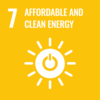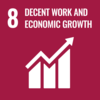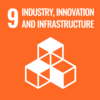Most grain processing industries use the drying process to reduce the moisture of the commodity. Currently, industries use sun drying, electric or gas-operated dryers, and solar dryers to dry fresh agricultural produce (e.g., paddy, maize, etc.). These dryers work on the principle of raising the air temperature to reduce its relative humidity, and this air dries the commodity. The drawback of this principle is that the conventional drying process is energy-intensive, associated with high operational costs and dry at high temperatures, affecting the quality of the product in terms of nutrition, especially aroma, vital vitamins, colour, etc. Moreover, electric, and gas-operated dryers use non-renewable energy resources, harming the environment with high carbon emissions. On the other hand, aflatoxins are also a major concern emerging these days due to inefficient drying and storage practices.
A proposed solar desiccant drying system provides speedy drying of agricultural produce at low temperatures by controlling the latent load of air, which helps maintain the quality of the product (colour, aroma, nutrients.). In fact, it is an economical and eco-friendly drying technology.
Annual carbon savings:



